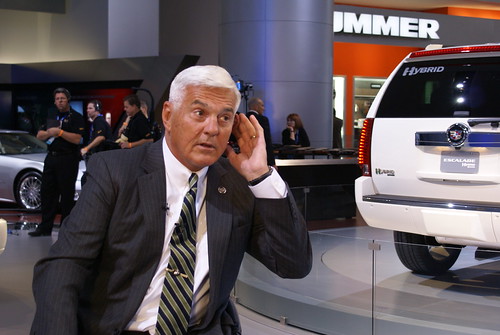South Korea to Boost Vehicle Fuel Economy Standards
(Source: Green Car Congress & R744.com)
South Korea plans to raise the fuel economy of locally-made vehicles to surpass future requirements being by the US and Japan, according to the Ministry of Knowledge Economy (MKE). Korea’s fuel efficiency standards are already slated to increase 16.5% in 2012 from the current levels.
New passenger cars sold within the country in 2008 ran an average of 11.47 kilometers per liter of fuel (27 mpg US, 8.7 L/100km)—up from 11.04 km/L (26 mpg US, 9.1 L/100km) recorded in 2007.
South Korea enacted fuel economy standards in 2006 for domestic cars and in 2009 for imported cars with sales of less than 10,000 vehicles. Companies manufacturing or importing more than 10,000 vehicles per year are subject to US CAFE standards. Standards as strict as those of advanced countries are likely to be in place by 2015 and 2020, MKE said.More importantly, a shift in purchasing habits to favor greener and more fuel-efficient vehicles will put Korea on the right path to the realization of its national vision—low carbon, green growth.
At present, Korean standards are at 12.4 km/l (29 mpg U.S.) for vehicles with engine displacements of 1.5 litres or less, and 9.6 km/l (22.6 mpg) for those above 1.5 litres. However, as a report from the International Council on Clean Transportation (ICCT) found last year, South Korea is the only nation in the world where fleet average fuel economy is projected to decline over the next five years due to a sharp increase of large engine sized cars. A 15% increase would thus raise the standards to about 14.3 l/km (33.6 mpg) and 11 km/l (25.9 mpg) respectively by 2012. By comparison, the U.S. fuel economy standards have been raised to 35 mpg by 2020.
South Korea first developing country to set GHG emission targets under Kyoto
South Korea could become the first nation not obliged by the Kyoto Protocol to set a national GHG emissions target. The country will thus freeze its greenhouse gas (GHG) emissions at 2005 levels, or 591 million tons of carbon dioxide, over the next five years, Environment Minister Lee Maan-Ee announced on 21 March. Korea’s first governmental scheme to tackle global warming will encourage the development of environmentally friendly vehicles, and initiate nationwide energy-saving campaigns in non-manufacturing sectors including households and commercial buildings. The freeze of GHG emissions until 2012 will actually be a small reduction as South Korea’s emissions have increased by an average of 2.2 percent annually in recent years.
The unprecedented move follows the United Nations climate change conference in Bali last December, where South Korea pledged to take concrete steps to curb emissions along with 130 other countries. Currently, South Korea is classified as a developing country not facing any emission targets under the Kyoto Protocol. However, as it is likely to be given the status of a developed country in a post-Kyoto agreement after 2012, the latest plan is seen by many as a preparation for even tougher targets in the future.



